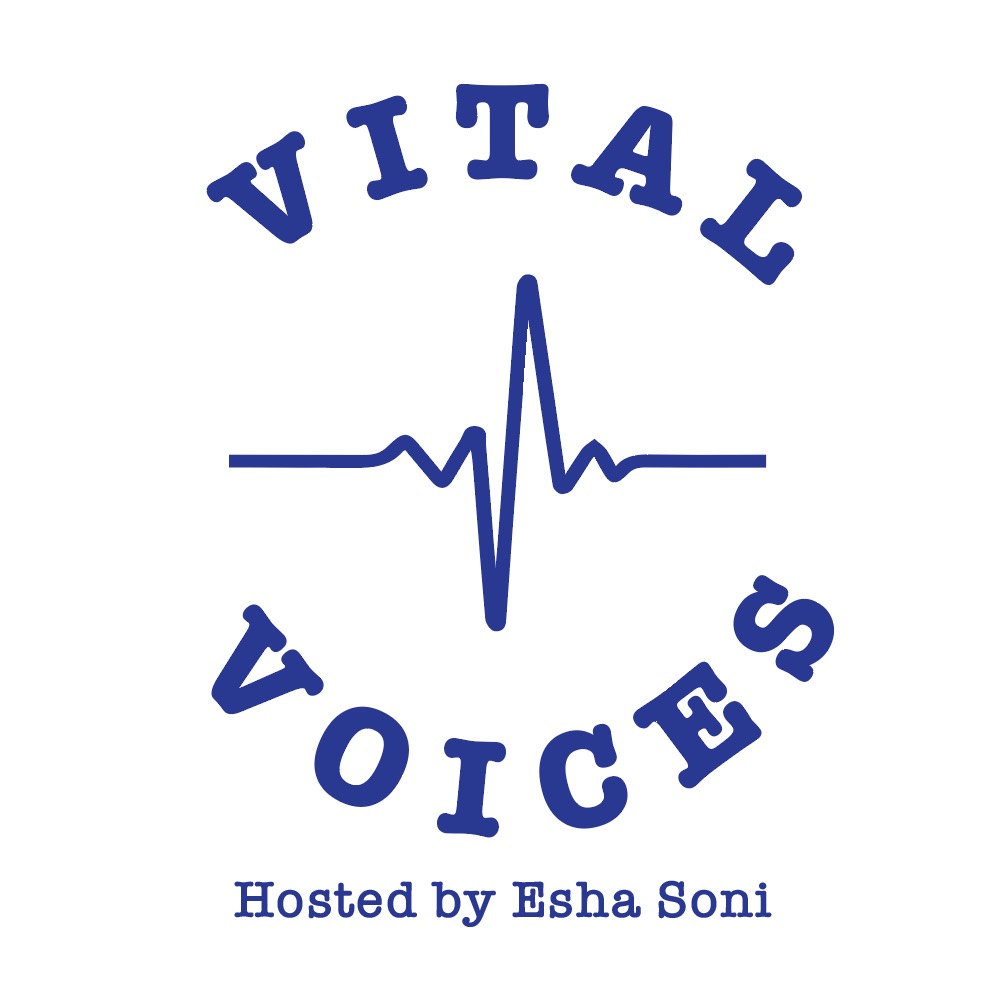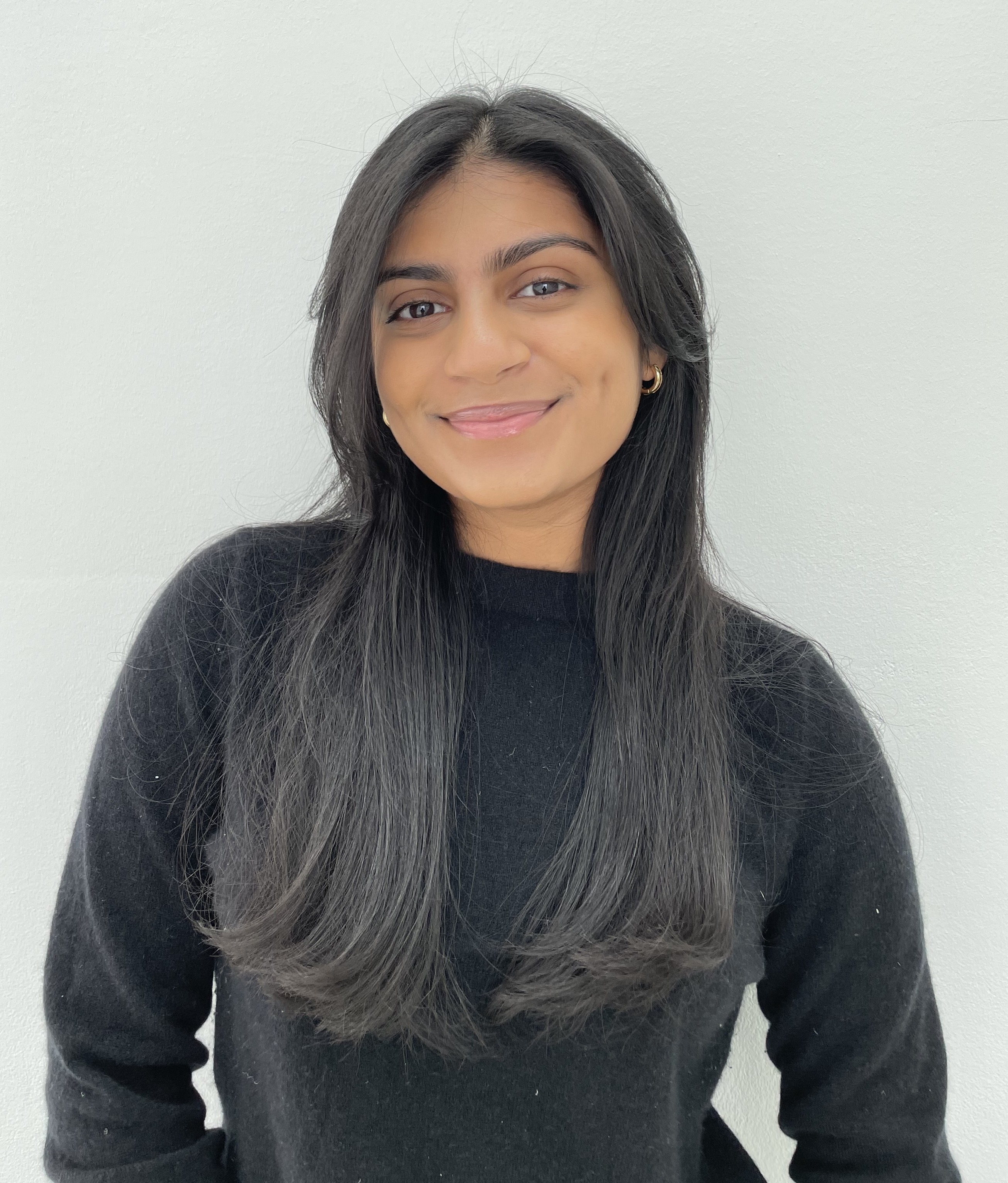
Vital Voices: Bridging the Gap Between Healthcare and Media
Esha Soni, '24 - Senior Capstone
Welcome to the Senior Capstone Project created by me, Esha Soni, at Lehigh University’s College of Health, the culmination of an inspiring journey through the intersection of healthcare and media. The project took the form of a captivating podcast series titled “Vital Voices,” which revealed a unique perspective on the critical interplay between these two domains.
Before becoming a Population Health major with a double minor in Mass Communication and Entrepreneurship at Lehigh University, I have always been passionate about combining healthcare and the media. Seeing it firsthand with the COVID-19 pandemic, I noticed a gap in healthcare reporting in the journalism field. Since it was the first time for many news outlets to cover this field of news in-depth, I could not help but wonder why health news stories have not always been given priority in journalism and the media. I later realized that not many people understood or even knew about preventative health and public health and how much of an impact they could have on our society. This led me to do research in my freshman year at Lehigh. I embarked on this mission of shedding light on healthcare in the media by conducting independent research with Dr. Eduardo J. Gomez on how different countries portrayed the pandemic in the media and how that affected the spread of the disease. Thanks to the College of Health (COH), I have been able to pursue interests throughout my time at Lehigh, from taking classes like Population Health and the Media to working as a Marketing Content Coordinator for the COH Marketing & Communications team.
Vital Voices is not merely a podcast; it’s an exploration of the symbiotic relationship between healthcare and media. The seven episodes delve into the profound impact media coverage has on shaping public perceptions, policies, and the very fabric of our health systems. By interviewing both seasoned journalists and dedicated healthcare professionals, I crafted a narrative that goes beyond the surface, providing a comprehensive understanding of the dynamics at play.
Key Themes Explored:
- Media’s Role in Health Communication: How the media influences public understanding of healthcare issues and shapes societal attitudes.
- Navigating Healthcare Reporting: Insights from journalists navigating the complexities of healthcare reporting, addressing challenges, and the ethical considerations involved.
- Voices of the Healthcare Frontline: Conversations with healthcare professionals, offering a firsthand account of their experiences and perspectives on media portrayal.
- Impact on Policy and Public Perception: Analyzing how media coverage influences healthcare policies and public trust in healthcare institutions.
- Championing Health Literacy: Advocacy for clearer, more accessible health information dissemination through various media channels.
The podcast features a diverse array of voices, including journalists who've covered healthcare extensively and healthcare professionals from various specialties, such as family medicine and pulmonology. This unique blend of perspectives contributed to a well-rounded exploration of the subject matter.
Episode 1: Joan Lunden, former Good Morning America (GMA) host
- This episode explores the crucial role of the media in covering healthcare comprehensively. Topics include Lunden’s journey into healthcare advocacy, the evolving role of media in public health awareness, challenges in responsible coverage, the impact of media on public perception, and examples of impactful healthcare stories. The discussion extends to addressing challenges posed by digital media and offering advice to aspiring journalists on maintaining objectivity. Lunden shares the current initiatives promoting effective healthcare communication.
Episode 2: Danielle Stephens, The Guardian’s lead producer
- The episode features Stephens’ journey from covering healthcare policy during the early days of the pandemic to transitioning between podcasting on UK and American politics. We discuss how these experiences have shaped her perspective on healthcare journalism. Topics include an assessment of The Guardian’s coverage, challenges faced in reporting on healthcare policy in different countries, and staying informed on evolving healthcare systems. The conversation touches on impactful healthcare policy stories, the role of investigative journalism in holding policymakers accountable, and the challenge of maintaining objectivity in reporting on polarizing healthcare issues. Stephens also shares insights into translating complex policy details into accessible content and discusses the evolving role of healthcare journalism in shaping public understanding.
Episode 3: Elizabeth Dolan, Dean of Lehigh University’s College of Health
- Dean Dolan’s unique background allows us to have a discussion regarding health and literature. The conversation delves into how this background informs her perspective on the significance of media coverage of healthcare topics. Topics include the effective bridging of complex healthcare aspects for the general public, the role of storytelling and narrative in health communication, and the evolution of healthcare portrayal in literature and media. Dolan shares a resonant healthcare-related story from the literature, addressing the power of storytelling. The discussion also covers countering misinformation in healthcare reporting, the responsibilities of educational institutions in promoting accurate reporting, and fostering a comprehensive understanding of health disparities. Dolan considers the intersection of ethics, literature, and healthcare reporting, along with initiatives for preparing students and aspiring healthcare journalists to navigate the evolving healthcare media landscape.
Episode 4: Dr. Henry Dorkin, Co-Director, Cystic Fibrosis Center, Boston Children’s Hospital and Associate Professor of Pediatrics, Harvard Medical School
- With Dr. Dorkin’s medical professional background, we focus on the role of media in shaping public perceptions of health-related issues, particularly cystic fibrosis and pediatric pulmonary medicine. We explore how the media can contribute to or detract from accurate health information dissemination in the digital age. Dr. Dorkin shares his insights on how healthcare professionals can collaborate with the media for effective communication, addressing challenges in balancing accessibility with accuracy and avoiding sensationalism. He highlights the complex nature of cystic fibrosis, with an emphasis on how the media can raise awareness in an empathetic and informative manner. Finally, Dr. Dorkin shares perspectives on the proactive engagement of researchers, clinicians, and healthcare institutions with the media to ensure accurate and informative health reporting.
Episode 5: Ellis Palmer, journalist at BBC Newshour on the BBC World Service
- Palmer emphasizes that disability health is not highlighted enough in the media. In this episode, we explore how this experience shapes Palmer’s perspective on the importance of healthcare coverage in the media. The conversation will include examples of impactful healthcare stories for the disabled community, emphasizing the role of media outlets like the BBC in providing comprehensive coverage. Palmer shares his personal experiences related to accessibility challenges and discusses improvements that can be implemented. Our discussion covered challenges faced by individuals with disabilities in accessing healthcare and how media reporting can address these issues.
Episode 6: Dr. Sweety Jain, Family Medicine Doctor at Lehigh Valley Health Network
- Family medicine doctor Sweety Jain discusses the importance of comprehensive media coverage of healthcare topics. The conversation delves into examples of critical healthcare issues that may receive inadequate coverage, emphasizing the need for effective communication to avoid misinformation. Jain shares insights into common misconceptions encountered and discusses how the media can assist individuals in staying informed amid rapid medical advancements.
Episode 7: Dr. Eduardo Gomez, Professor and Director of the Institute of Health Policy and Politics at Lehigh University’s College of Health
- With the release of his new book, “Junk Food Politics,” which focuses on the intersection of politics and global health policy in emerging middle-income countries, Gomez provides an overview of the book’s central themes, detailing his interest in exploring the impact of the beverage and fast food industries on these economies. We touch on the reception of the book by various stakeholders, including policymakers, industry representatives, and the public, highlighting notable reactions. Also, we explore the role of the media in raising awareness about the influence of these industries on public health and government policies, discussing potential challenges and opportunities.
The gatherings and results I concluded from all seven podcasts were:
Different health sectors need more coverage
- Expanding media coverage beyond the spotlighted healthcare sectors is crucial for fostering a comprehensive understanding of health-related issues. A more nuanced approach ensures a broader perspective on diverse medical specialties, public health concerns, and marginalized healthcare issues.
Emphasizing more preventative health measures in the media
- Highlighting preventative health measures in the media is crucial for fostering a proactive approach to well-being. By emphasizing preventive strategies, media outlets can empower audiences to make informed lifestyle choices, encouraging healthier habits.
Incorporation of training for both fields
- By providing journalists with foundational knowledge in healthcare, they can effectively communicate complex medical information while maintaining accuracy and context. Also, healthcare professionals benefit from media training, learning how to convey their expertise in a clear and accessible manner for a broader audience.
Media Literacy
- By fostering media literacy skills, people can critically evaluate sources, discern credible information from misinformation, and understand the nuances of health reporting. This empowers the public to make informed decisions about their well-being, encourages a more discerning approach to health-related news, and reduces the risk of misconceptions.
The success of Vital Voices can be measured not just in the number of episodes produced but also in the conversations it sparked and the bridges it built between the healthcare and media realms.
This project has been really meaningful, and there are a lot of people who have helped me on this journey that I would like to thank. To the insightful interviewees, thank you for generously sharing your expertise, perspectives, and time. Your contributions have added depth and authenticity to the narrative, making Vital Voices a truly enriching experience. I extend my heartfelt appreciation to the dedicated faculty and staff at the College of Health, specifically my advisor, Dr. Christine Daley, for her facilitation throughout this endeavor. Also, I want to thank Steven Lichak for his guidance and for sharing the resources of the Digital Media Studio; it played a pivotal role in bringing this vision to life, providing invaluable resources and technical expertise, and Nora Connelly for making this article come to life and providing me with so much support through the semester. Finally, I would like to express my gratitude to my parents: I could not be where I am today without their unwavering encouragement.
Vital Voices stands as a testament to the potential impact of innovative projects at the crossroads of academia, healthcare, and the media. By unraveling the intricate threads that weave these domains together, I have not only completed a senior capstone but have also laid the foundation for my continued exploration and dialogue in these critical areas.
And on that note, as I say at the end of all my episodes, take care, stay well, and keep listening to the Vital Voices that shape our world.
- Esha Soni 